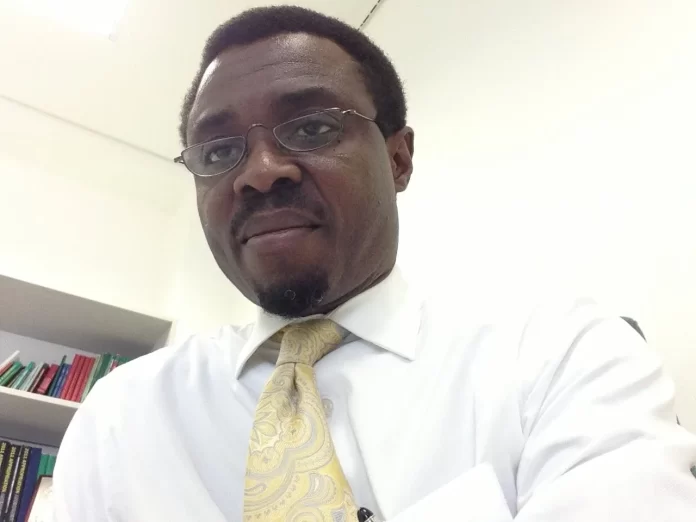In Nigeria, as history has shown and contemporarily too, power is sought for and protected for one singular purpose which is self-interest and any other consideration simply masks the true essence of seeking power.
By Sonny Ogulewe
The character of the Nigerian political milieu is not different from the rest of the developing world where enlightened self-interest is the dominant purpose for seeking political power not of any pretentious altruistic consideration.
In Nigeria, as history has shown and contemporarily too, power is sought for and protected for one singular purpose which is self-interest and any other consideration simply masks the true essence of seeking power.
It is laughable when Nigerian politicians are accused of corruption, nepotism or overtly patronizing of their ethnic-group, because one variable that is rather constant is the fact that nepotism is inevitable as a protective shield for holding on to power and the primitive dividends that accrue.
Even those who are alienated from the power calculus only promote these arguments for inclusiveness, equity or power rotation in which ever form it is presented simply because they are seeking the opportunity to also ‘eat”. These agitations are presented in such a manner that it is embraced by the unsuspecting masses as representing the aggregate interest of their sub-group and rally to give impetus to them.
But history has shown that it is incorrect as the elite almost always begin to show the signs that the agitations were pretenses to get close to the dining table once the opportunities arrive.
READ ALSO:
Coup plot: DSS says Fani-Kayode not off the hook, interrogation continues
The arguments therefore about marginalization, inclusiveness, accommodation, equity etc. are all part of the schemes to advance the self-interest of the political elite of sub-regional groups within a competitive and larger political space.
This position and related arguments advanced by scholars has shown that political power is essentially sought for by the political class in order to advance their economic and social conditions not of course for the generality of their people.
This is the reason the first step taken by the political elite once they acquire political power is to recondition and consolidate their economic base through corrupt practices that ensure that they have the instrument to keep power.
The second is the selective patronage of the political elite of their sub-regional groups which in turn avails the mass of their people the crumbs from their tables. The mass of the people of this privileged sub-group who scavenge these crumbs as dividends of their proximity to power, cherish and in fact glamourize these crumbs and see them as sufficient reasons to do everything no matter how inhuman to protect and support these predatory elite to keep the power even at the cost their personal safety.
In this milieu, the character of the political class is constant and predictable. The key element is to keep power by every means possible including killing, arson, thuggery, massive corruption, outright lying or deceit and more conveniently ethnic subjugation for selfish economic reasons.
It is, therefore, depressing to watch politicians during campaigns wear traditional attires of different sub-groups in pretentious demonstrations of unity which they remotely believe in. Hence, it tasks the arguments of some scholars that political power could be achieved through testaments about morality, emotive prepositions or delusive fantasies not by that singular element of interplay of political forces propelled by self-interest.
It is a dangerous or unmitigated illusion to contemplate power outside the prism of self-interest and intrigues of primitive dimensions. Some analysts had argued and rightly too that while the kingdom of heaven runs on the oil of righteousness, that of earth runs on greed and corruption.
One is therefore constrained to acquiesce with this allusion on the strength that our contemporary democracies particularly in Africa have not given us sufficient reasons to disagree with it. Our democracies have not advanced our economic and social conditions rather have made it worse while the supposed servants of the people have grown fat on our common wealth.
It is therefore safe to argue that political outcomes are determined not by emotions, delusive fantasies of equity and argument about morality but by the crude interplay of political forces effectively driven by self-interest.
It is again safe to argue that the ability of the political elite to effectively mask their self-interest within the aggregate group or sub-group interest and the ability to articulate them effectively within the framework of this interplay is the only realistic opportunity to politically advance and appropriate the perks and opportunities which political power avails.
The ability we are referring to in this argument is tact, which is the capacity to apply diplomacy or maneuverability to create a potent mass appeal as the most viable political option that guarantees the elusive political returns.
Of course, when power is achieved through these unsuspecting schemes then self-interest takes the front seat and the beneficiaries become ardent advocates for patience and national unity while that struggle for sub-group inclusion fizzles away.
Power reconfiguration in Nigeria therefore can only be accomplished not by puerile acquiesce with the norm ‘our turn to eat” but by deep introspection of the route that has taken us thus far to penury and the determination to align progressive forces for a change.
From the foregoing, it is instructive to accept the reality that the mass hysteria or threats from sub-regional groups only reinforce group’s weaknesses and inability to appropriately align interest with others to form a bloc that could capture power from which it could advance its interests.
Again, mass hysteria and threats inadvertently provoke fears and reinforces group rejection and isolation and equally encourages the alignment of other political forces into a formidable political bloc that ensures that the opposing group is permanently shortchanged and rendered powerless in the political process.
One question agitators have failed to answer is why a group holding political power should willingly relinquish it where there is no guarantee of their safety and inclusion in the emerging political arrangement.
Essentially, real political change could only take place within a plural political setting where by stoke of sudden re-orientation there is bottom-up consensus that mis-governance which has significantly narrowed the gap between the majority poor and the middle class is no longer tolerable.
Whereby these concerns are amplified and a new political orientation ensues, it will no longer be a matter of group interest along sub-regional lines that matter but the aggregate interest along the lines of dissonant majority only bonded by the anger of collective poverty and the frustrations.
In this circumstance, the political space opens up for new entrants that to a large extent encapsulates the collective frustrations of the masses and at the same time represents the expectations of a better and resilient society. This emergent orientation could inadvertently benefit the group that has really never contemplated holding unto power.
But where this alliance of interest which is an evolving process fails to crystalize, it is improbable that a significant political change is envisaged in a plural and competitive political space where political power means everything.
Dr. Sonny E. Ogulewe, a Political Affairs Analyst, writes from Abuja.













